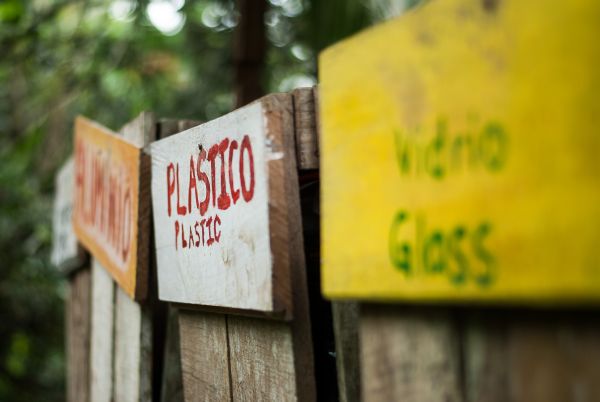Costa Rica News – Roberto is an elder in the Bribri community of Yorkin, a small village of 280 nestled in Costa Rica’s Talamanca mountain range. At 71, Roberto is considered an “encyclopedia” in his community. A man whose years and wisdom are used for guidance and perspective, he has raised a family and sold groceries from a tiny shop below his second-story home for many years.
But part of Roberto’s perspective is more sinister in its nature; it is in the changing environment of the tropical rainforest around him.
“The forest and the jungle itself has changed,” Roberto said. “There’s less vegetation—it’s a little more warm.”
This does not go unnoticed by other members in the community, who live very much in touch with the ecological climate of the dense jungle they call home. And though the weather is out of their hands, artificial materials are not. As they have begun to venture into a nearby town down the river, they bring back food and items that are cased in various materials like glass or plastics and are consumed by individuals or sold to the community at little stores like Roberto’s.
The products are then discarded on the ground.
“Recycling was not something in our culture because we didn’t use plastic,” said Rolando Morales, 22. “Everything was put back in the ground where it came from. But nowadays, we have plastic bags and different kinds of groceries, so that’s why we’re trying to implement recycling.”
Morales is the third-highest ranking community leader in Yorkin, and he also works with Stribrawpa, a Yorkin-based organization started by Bribri women in the community to educate outsiders about the Bribri culture, language and way of life. It was the organization that started the recycling initiative in 2007, after the leaders of the community began to realize the negative effects of littering.
“We have to make a difference in the world where we are living right now, so younger generations are the ones in charge [of teaching] older generations,” Morales said.
And teach they do. The marked recycling bins placed by Stribrawpa sprawl throughout the community. People can throw their glass, plastic and paper waste into the bins. The bags are then removed and placed in the back of a canoe that snakes its way through and around the rapids of the Talamanca river. One way, the trip takes a little over an hour.
When the canoe reaches shore, the bags are walked by members of the community for about a half a mile to the town of Bambu, where the Talamanca-Caribbean Biological Corridor Association and the Recycling Association of the Caribbean have teamed up to collect Bribri recyclables on the first and third Friday of every month. Recycling in Costa Rica is important, said Irene Campos, a civil engineer with a focus in environmental sanitation, and a professor at the University of Costa Rica. “The new law on Integrated Waste Management includes recycling as one of the forms of management that should be implemented,” she said.
Recycling is also a way to reduce the amount of content in landfills, which Campos said are highly saturated.
“Waste management in certain areas is complicated, so that recycling is very important, [especially in] areas where landfill is technically impractical,” Campos said.
Campos said there’s also a challenge for municipalities to get enough people to recycle for a profit to be made. “The volume is often important, as well as having companies with technology for recycling of materials.”
Yorkin feels the challenge to initiate the practice of recycling in their community. It’s not that the community members don’t want to protect the earth, it’s that culture is the cornerstone of the Bribri way of life. Recycling is only a recent part of that culture.
But community members said that integrating the change is difficult, but necessary.
“It is difficult for all the communities to implement the plan because not everyone is feeling welcoming of it,” Morales said. “For a grandpa, it is difficult to handle a bag of plastic because of the way they were raised. A grandpa is going to throw a plastic bag into the ground, as it used to be with the organic food, so it is a little difficult for old generations…but we need to teach people, ‘no, put it here, instead.’”
By DIANA CRANDALL, From Pulitzer Center

